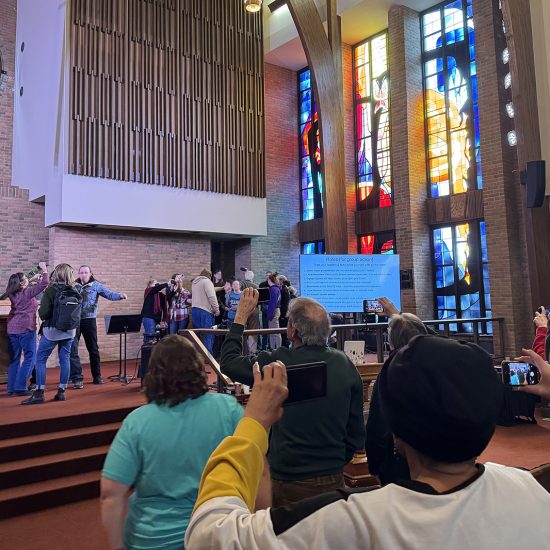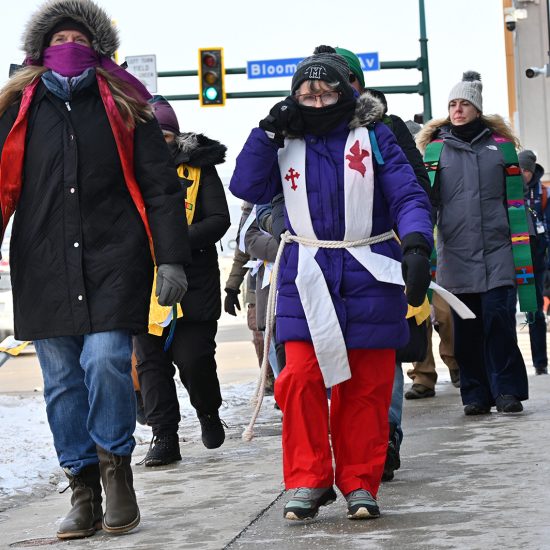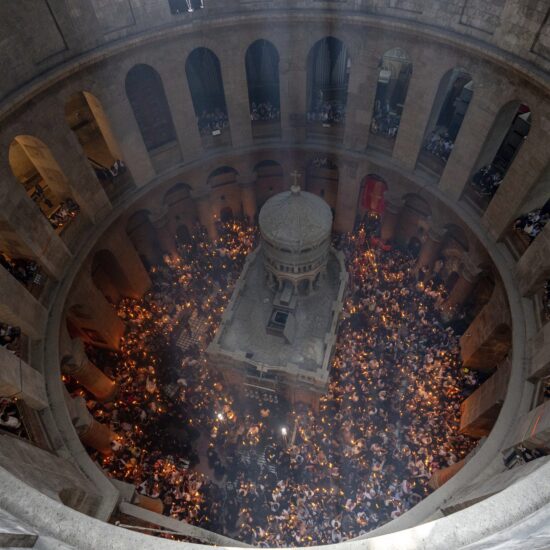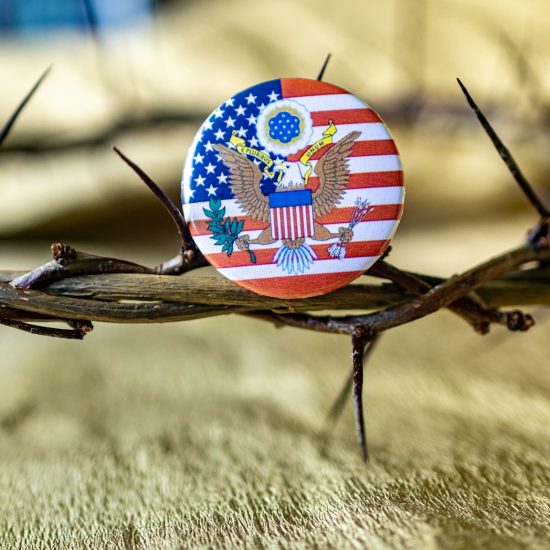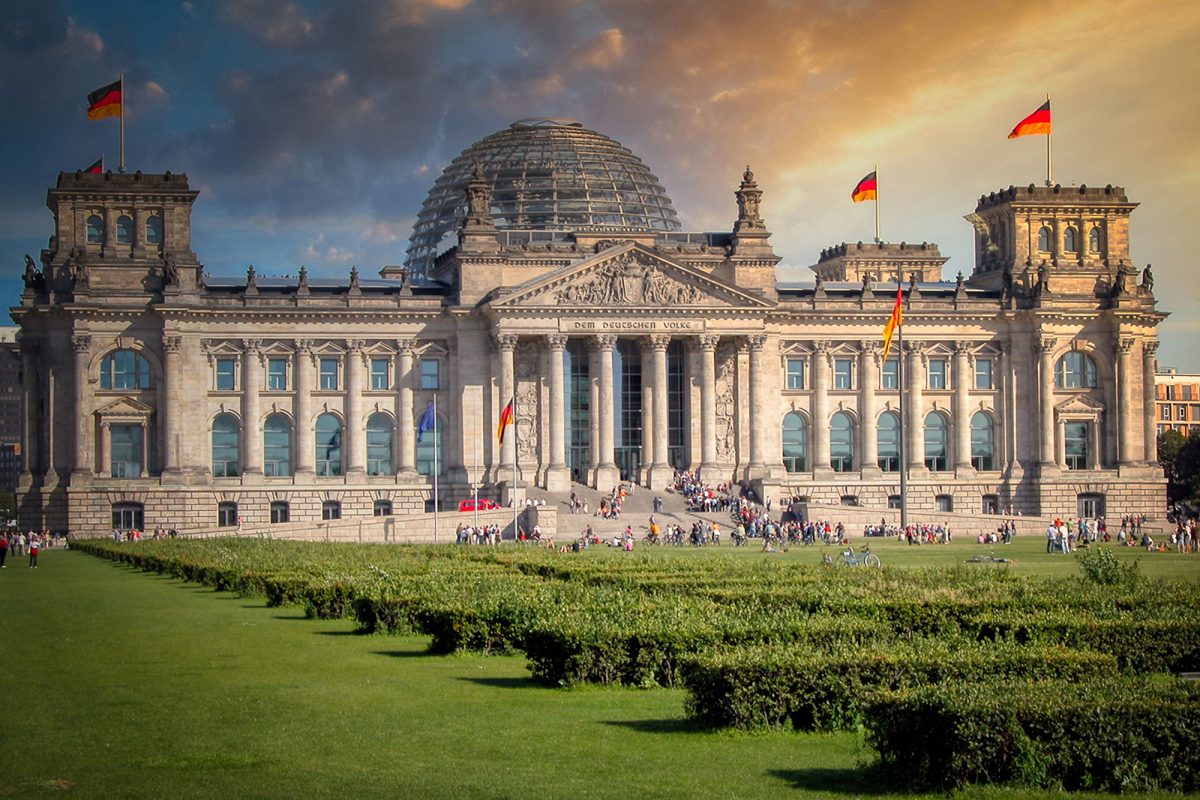
BERLIN (RNS) — In February, Germany’s far-right party Alternative für Deutschland made sweeping gains in a federal election, especially in the country’s east, formerly the German Democratic Republic under Soviet rule. Founded just 13 years ago, the party now holds more than 20% of the seats in the Bundestag, Germany’s parliament, making it the second largest political party in power.
As the AfD has risen in prominence, it has formed a growing bond of mutual support with President Donald Trump’s administration. AfD co-leader Tino Chrupalla attended Trump’s second inauguration in January. In the lead-up to Germany’s February election, Elon Musk — then serving in the White House’s Department of Government Efficiency — publicly endorsed the AfD. Vice President J.D. Vance also expressed support, meeting with Chrupalla’s co-chair, Alice Weidel, just nine days before the vote.
On the more practical ground of policy, the connection between the U.S. right and Germany’s lies in their rejection of immigration. That issue has also brought the AfD to make common cause with the Christian Democratic Union, which breached the anti-AfD “firewall” in early 2024 when the party joined in support of an immigration law. The vote signaled a shift many saw as legitimizing the far right’s influence on German politics.
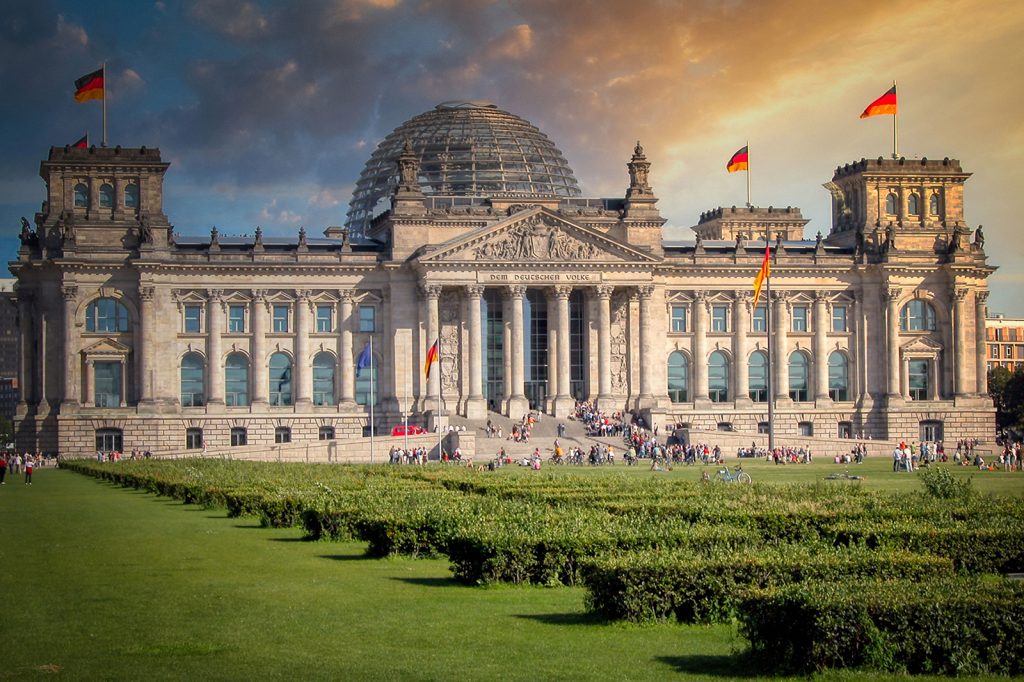
The Reichstag government building in Berlin. (Photo by Albrecht Fietz/Pixabay/Creative Commons)
What the AfD does not share with either of its political bedmates is a religious wing. While the GOP has long played to evangelical Christians and other religious conservatives, and the CDU’s base includes religious conservatives, the AfD, whose support is rooted in the former Soviet-controlled east of the country, is a firmly secular party and its supporters are largely nonreligious.
Ronald Gläser, one of the AfD’s newly elected members of Bundestag, said in an interview: “Christianity here does not play such a big role in politics. Of course, we would define Germany as a Christian country, but this is not something that is so important for us.”
Gläser added that religion played a larger role in the AfD’s concept of the country’s heritage. “Christianity, of course, this is part of our heritage, our history, and therefore a part of our party,” he said. “We want to reinstall Germany as what it was, a free and prospering industrial nation in the heart of Europe, and Christianity would be part of it.”
Rolf Schieder, retired professor of practical theology and religious education at Berlin’s Humboldt University, said, “It’s mostly nonreligious people who vote for the right.” The effect is especially pronounced in the AfD’s strongholds in the east. “They grew up with this Marxist idea that you don’t need any spiritual, religious ideas and you should just focus on what’s in front of your eyes,” Schieder said.
Catholic Bishop Matthias Heinrich, the auxiliary bishop of Berlin, said an understanding of Christianity’s influence as a cultural heritage is common across Germany’s political spectrum. “There actually still exists a foundation in terms of Christian culture. That means not in terms of personal belief,” he said.
In recent months, however, Germany’s Catholic and Protestant leaders have begun to criticize the AfD and the CDU for their anti-immigrant fervor. In January, the Evangelical Church in Germany, a federation of 12 Lutheran and Reformed denominations, issued a joint letter with the Catholic German Bishops’ Conference in denouncing the AfD, calling its policies “incompatible with the Christian image of God and humankind.”
Last year, Ulrich von Plettenberg, vicar general of the Catholic Diocese of Trier, in southwest Germany, removed an AfD lawmaker from the leadership of one of its parishes. A month before, Martin Michaelis, a Protestant pastor in central Germany, was demoted after announcing his candidacy for office on the AfD ticket.
“You cannot be (a church leader) at the same time because what you’re preaching, what you stand for, is contradicting each other,” said the Rev. Silke Radosh-Hinder, deputy superintendent of the Evangelical Church in Germany’s Berlin-Stadtmitte district. “The ideology is against what we believe in our church.”
Meanwhile, Schieder noted that Germany’s left-wing parties, such as Die Linke (The Left), are increasingly attracting religious voters who view their politics as more closely aligned with Christian values. “Die Linke is slowly overcoming its anti-religious bias,” said the professor, as German Protestant faiths especially become open to social democratic ideas and those of the environmentalist Green Party.
Die Linke emphasizes social justice, anti-poverty measures and climate protection and advocates for affordable housing, accessible health care and stronger protections for refugees. On environmental policy, it calls for climate justice and sustainable development, often echoing statements from the Evangelical Church in Germany.
Schieder added that more than being united by faith, the typical AfD supporter resonates with the party’s anti-immigrant political rhetoric.
The AfD has made motions in the past to claim a Christian ethic for itself. In an interview with the German magazine Focus in 2017, Weidel called the AfD the “only Christian party that still exists” in German politics.
But Schieder said any movement to reclaim Christianity on the right is fueled more by Islamophobia than by genuine faith. “They claim that we now need Christianity because they are against Muslims,” he said. “They are afraid of Islam, but they also envy Islam for still having family values.”
Gläser, the AfD lawmaker, said his party is not against people helping those in need, but takes issue with the setup of a “socialist” government taxing Germans to fund social programs. But he nonetheless seemed to prove Schieder’s point about Islamophobia.“We are the only political party that will stop the Islamization of Germany, and Islamization means that the Jews will have to suffer,” Gläser said.
But Veronika Rieger, a pastor-in-training in the Evangelical Church in Germany, said this kind of talk is what makes the anti-immigrant synergy between AfD and the Republican Party dangerous — and un-Christian.
“You can’t choose who is your neighbor. You can’t say, ‘Oh, you’re only my neighbor if you’re White, or if you’re German, or if you’re not disabled, or if you’re not queer,’” they said. “If you make politics which actively go against the most vulnerable groups in our society, you can’t be Christian.”


